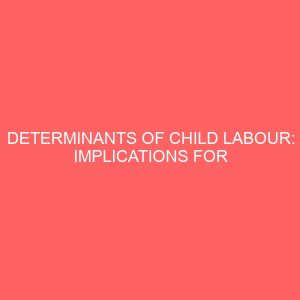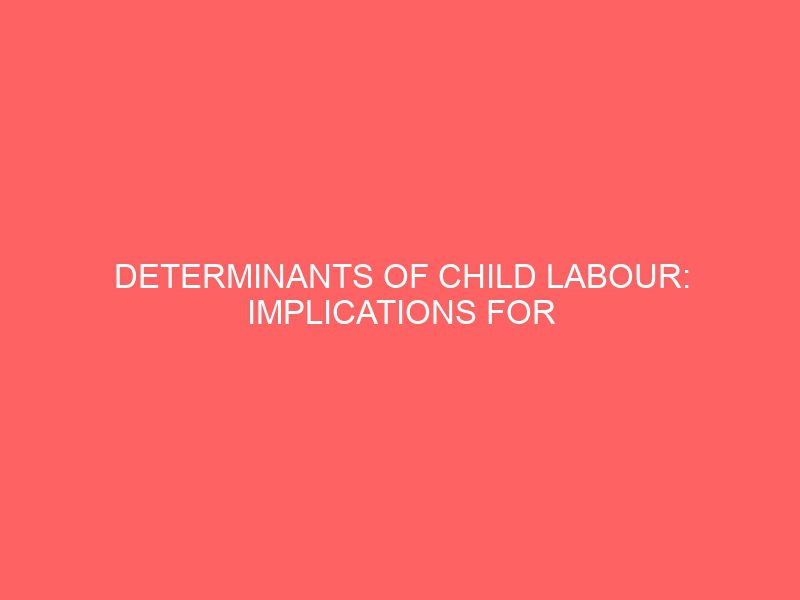Description
ABSTRACT
This study investigated the determinants of child laabour and its implications on the progress of UBE programme, with particular reference to Abakaliki urban, Ebonyi State. The study was a mere survey guided by three research questions. A sample of fifty 50 respondents were involved in the study. The sample was drawn from the population. A questionnaire designed by the researcher was used to collect data. The data collected were analyzed and calculated based on the assigned weight or value of the 4 point Likert scale or mode of response. Then the calculated weighted standard mean response and cutoff point of 2.5 was used to determine the significant status of each item/statement in the three research question. The results of each of the research question were listed in the research summary of findings. Based on the results of the study, conclusions were drawn and recommendations to solve the problem of child labour in Abakaliki urban were made, while limitations of the study were highlighted and related topics for further study were listed.
CHAPTER ONE
INTRODUCTION
BACKGROUND OF THE STUDY
Child labour is a major challenge for the attainment of the goals of Universal Basic Education Programme in Nigeria
Child labour is defined as, the participation of young children under the age of 15 years in the labour force, with the aim to earn a living or to support household income Grootaert and Kanbur, 1995. In most developing countries, I in every 5 children work; and I in every 3 children work in Africa Nigeria inclusive, though there are rates across these regions World Bank, 2007.
TABLE OF CONTENTS
Title page
Approval page Dedication Acknowledgements Abstract
Table of contents
CHAPTER ONE: INTRODUCTION
Background of the study Statement of the problem
Purpose of the study
Significance of the study
Research question
Scope of the study
CHAPTER TWO: REVIEW OF RELATED LITERATURE
Parental responsibility to children
Meaning of child labour
Types of child labour
Causes of child labour
Consequences of child labour
The Universal Basic Education
Efforts of government to eliminate child labour
Child labour major challenge of UBE
Summary
CHAPTER FOUR: DATA ANALYSIS AND
PRESENTATION OF RESULTS
CHAPTER FIVE: DISCUSSION OF RESULTS
Discussion of the findings
Conclusions
Implications of the study
Recommendations
Suggestions for further research
Summary
References
Appendices








Reviews
There are no reviews yet.